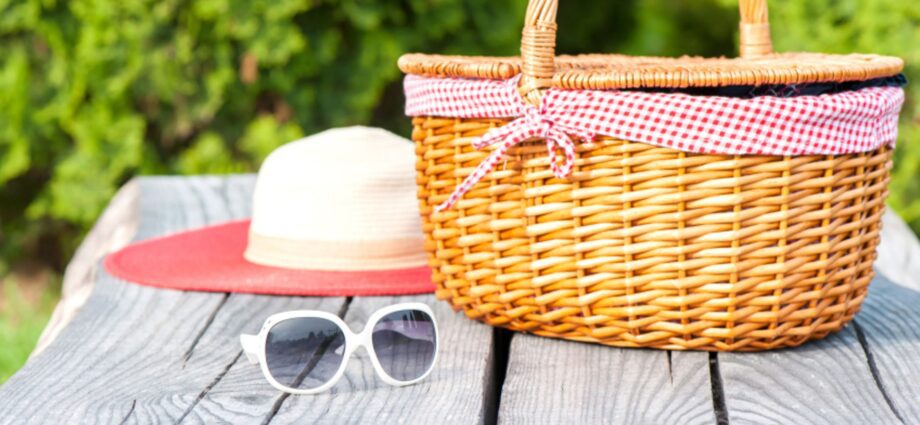Contents
With the onset of warm sunny days, the soul asks for unity with nature, and the body requires kebabs. This tradition is close not only to us, but also to many other peoples. Have you ever wondered where it came from? Who was at its origins? What customs are associated with it? We offer you to go on a trip together with the experts of the Soft Sign brand and learn all the most interesting things about picnics in different countries of the world.
Verbal battles
In the explanatory dictionary of Dahl, it is said that a picnic is “a treat with a fold or a country party with a bratchina”. We can safely say that our distant ancestors already indulged in such an occupation in animal skins, when after a long strenuous hunt they slaughtered a mammoth and fried good pieces of meat on a spit. And ritual dances near the campfire — what is not entertainment for a picnic?
If we turn to the roots of the word “picnic”, then it comes from the French words “picquer” — “to prick” and “nique” — “a certain little thing”. Involuntarily, a parallel arises with the fact that small pieces of meat are just impaled on skewers. This linguistic observation suggests that the French should be thanked for the invention of the picnic. However, the British are unlikely to agree with this. More precisely, the philologists from Cambridge will not agree. According to their version, the word “picnic” comes from the English “pick” — “to cling” or “to grab”. And they consider the phenomenon itself to be their own invention. So who is right after all?
With a sense of accomplishment
The truth, as always, is in the middle. The word was invented by the French, and the phenomenon itself was invented by the British. Initially, in England, a picnic was the logical and most long-awaited conclusion of a successful hunt. A cozy corner was chosen somewhere in the depths of the forest, a camp was arranged there, a fire was lit and the freshly skinned and butchered prey was fried on an open fire. British aristocrats claim that they were the first to use plaid blankets and baskets-chests for food.
Today, hunting, to the relief of many, is an optional condition for a modern picnic in English. Its main dish is Scottish eggs. These are boiled eggs in a fur coat of minced meat under a crunchy bread breading. In addition, they are sure to prepare sandwiches with cheddar, anchovies and cucumbers, veal chops, Cornish pasties and pork pies. And they wash it all down with white or pink wine.
Let’s go, pretty girl, for a ride
The French did not like brutal entertainment like hunting. Therefore, they turned a purely male entertainment into a romantic ladies ‘ fun. So, a picnic in French in the XVII century meant a leisurely boating on the lake, small talk under openwork umbrellas and a light unobtrusive snack.
That is why even today, in the picnic basket of a typical French family, you can often find a fresh baguette, several varieties of local cheeses, dried meat or ham, as well as fresh fruit. A bottle of good French wine is included. And no more gastronomic excesses.
However, sometimes the French still do not mind forgetting about moderation and having fun tasty, noisy and on a grand scale. So, in 2002, in honor of Bastille Day, the authorities of the country organized a nationwide picnic, which was attended by almost 4 million people.
A picnic with an unexpected ending
In Russia, people quickly appreciated the picnic traditions. Perhaps the most “curious” of them occurred during the Crimean War. On the eve of an important battle near the Alma River, one of the Russian generals reported to the great-grandson of Peter’s favorite, Admiral Alexander Menshikov:”We will throw hats at the enemy.” The commander of the Russian troops with a calm soul invited everyone to witness the triumphal battle firsthand. And the crowd, waiting for bread and circuses, took more comfortable places on the nearby hills. But no one was waiting for such a stunning finale — the Russian army was defeated.
Today, a picnic and a barbecue in our view merged together. We borrowed the main dish from the nomadic peoples from the East and changed it beyond recognition. And the tradition of going out of town and sitting by the fire with a guitar, as is commonly believed, became fashionable in the time of Nikita Khrushchev. No wonder he was a notable lover of summer holidays.
Lazy exotic on coals
An Australian picnic is never complete without bush tucker, or Aboriginal food. In this country, not only beef steaks with blood are laid on coals, but also kangaroo, possum, emu ostrich and even crocodile meat.
The Japanese prefer not to go anywhere for a picnic. Cozy kebab shops can be found in any city at every step. And they are called yakitori. Just like traditional chicken skewers on bamboo sticks. Usually, chopped poultry meat, giblets and skin are rolled into tight balls, fried on skewers and poured with sweet and sour tare sauce.
Thais also prefer street food and enjoy their favorite kebabs whenever they want. The tiny-sized satai kebabs made of pork, chicken or fish are especially loved. The meat is first marinated in herbs, and then impaled on lemongrass twigs soaked in water. The aroma and taste, as gourmets assure, are incomparable.
The love of picnics unites entire nations. It is not surprising, because it is easy and relaxed to relax in nature. Especially when the tempting aroma of kebabs so sweetly teases the appetite. TM “Soft sign” made sure that nothing marred the peaceful rest. High-quality paper towels and napkins are things that you can’t do without in nature. They will give you comfort and genuine care so that you can really enjoy a long-awaited family picnic.










